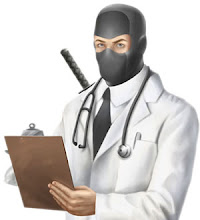Anterior Sternal Dislocation
An 83-year-old man was admitted to the acute medical ward after having fallen down in his home. On admission he was confused and agitated.
Physical examination revealed a swelling with bruising over his right sternoclavicular joint (Panel A) and periorbital bruising. He had a white-cell count of 14×103 per cubic millimeter, a C-reactive protein level of 56 mg per liter, and a urinalysis that was positive for a urinary tract infection. A social history was taken and revealed no suggestion of abuse. Radiography of the chest (Panel B) showed a right sternoclavicular dislocation, which was clinically confirmed to be anterior.
Anterior sternoclavicular dislocations often result from an indirect force to the shoulder, rotating the shoulder posteriorly. The physician must always consider the possibility of abuse having caused this type of injury. The patient was treated for his urinary tract infection. His anterior sternoclavicular dislocation was treated conservatively. The confusion resolved, and after a short period of rehabilitation, he regained good function of his right upper limb.
Physical examination revealed a swelling with bruising over his right sternoclavicular joint (Panel A) and periorbital bruising. He had a white-cell count of 14×103 per cubic millimeter, a C-reactive protein level of 56 mg per liter, and a urinalysis that was positive for a urinary tract infection. A social history was taken and revealed no suggestion of abuse. Radiography of the chest (Panel B) showed a right sternoclavicular dislocation, which was clinically confirmed to be anterior.
Anterior sternoclavicular dislocations often result from an indirect force to the shoulder, rotating the shoulder posteriorly. The physician must always consider the possibility of abuse having caused this type of injury. The patient was treated for his urinary tract infection. His anterior sternoclavicular dislocation was treated conservatively. The confusion resolved, and after a short period of rehabilitation, he regained good function of his right upper limb.
Labels: CASES, ORTHOPEDICS



<< Home